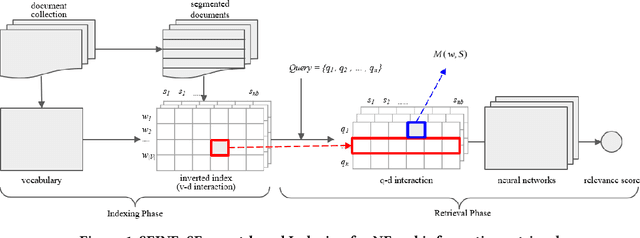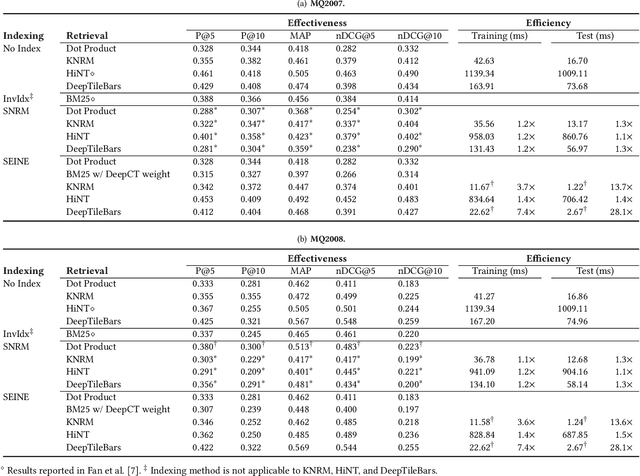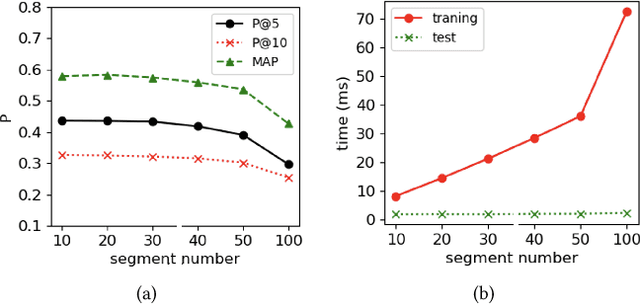SEINE: SEgment-based Indexing for NEural information retrieval
Paper and Code
Nov 27, 2023


Many early neural Information Retrieval (NeurIR) methods are re-rankers that rely on a traditional first-stage retriever due to expensive query time computations. Recently, representation-based retrievers have gained much attention, which learns query representation and document representation separately, making it possible to pre-compute document representations offline and reduce the workload at query time. Both dense and sparse representation-based retrievers have been explored. However, these methods focus on finding the representation that best represents a text (aka metric learning) and the actual retrieval function that is responsible for similarity matching between query and document is kept at a minimum by using dot product. One drawback is that unlike traditional term-level inverted index, the index formed by these embeddings cannot be easily re-used by another retrieval method. Another drawback is that keeping the interaction at minimum hurts retrieval effectiveness. On the contrary, interaction-based retrievers are known for their better retrieval effectiveness. In this paper, we propose a novel SEgment-based Neural Indexing method, SEINE, which provides a general indexing framework that can flexibly support a variety of interaction-based neural retrieval methods. We emphasize on a careful decomposition of common components in existing neural retrieval methods and propose to use segment-level inverted index to store the atomic query-document interaction values. Experiments on LETOR MQ2007 and MQ2008 datasets show that our indexing method can accelerate multiple neural retrieval methods up to 28-times faster without sacrificing much effectiveness.
 Add to Chrome
Add to Chrome Add to Firefox
Add to Firefox Add to Edge
Add to Edge